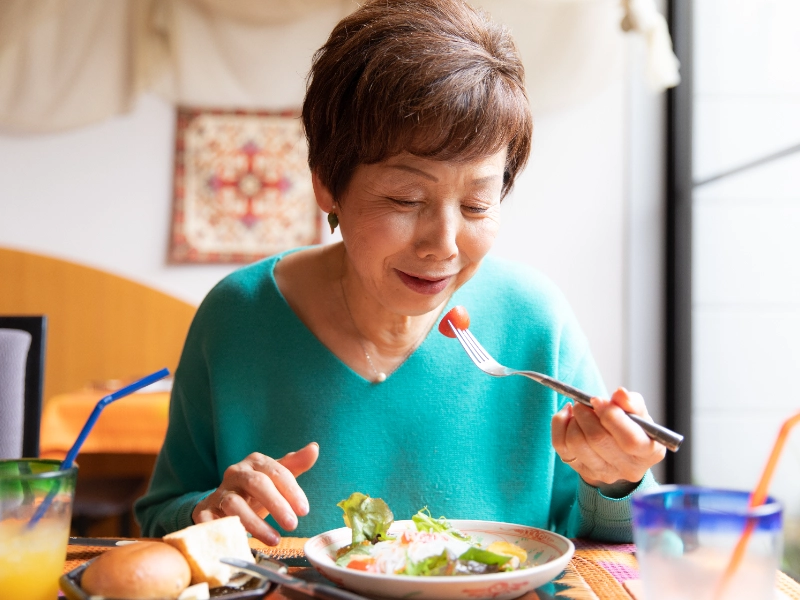Advertisement
7. The Impact of Aging on Taste Perception

Advertisement
Our taste sense varies with ageing and can influence our enjoyment of food. These variations could come from health issues, lifestyle decisions, and physiological processes. Knowing how ageing affects taste perception will enable us to modify our diets and keep a pleasing relationship with food all our life.
A loss of taste buds is one of the most important alterations in taste sensation with ageing. Studies reveal that as we age, taste receptors lose density, which lowers sensitivity to flavours. Some people search for stronger flavours or seasonings to offset this loss in taste sensation since food taste can seem less vivid and pleasurable.
Besides, the olfactory sense also usually fades with age. This decrease can affect our capacity to appreciate food since taste perception depends much on smell. Older persons may discover that their preferred foods no longer bring the same enjoyment, which would lower their appetite and discourage their desire in eating.
Taste perception can also be influenced by health issues and drugs sometimes linked with ageing. Some drugs change taste sensations, which results in metallic or bitter aftertastes. Older persons should be especially careful about their food choices since diseases including diabetes, hypertension, and cancer can further affect taste and appetite.
Older folks can use certain techniques to improve their taste sensation in spite of these obstacles. Experimenting with several herbs, spices, and flavour combinations might help pique food-related enthusiasm once more. Maintaining good dental hygiene and being hydrated can help to support general taste sensation.
In essence, ageing can greatly affect taste perception, which alters taste bud density and olfactory sensitivity. Knowing these shifts helps us to modify our diets and keep a pleasing relationship with food as we get older. Older persons can keep enjoying the delights of eating by welcoming fresh tastes and gastronomic adventures.
